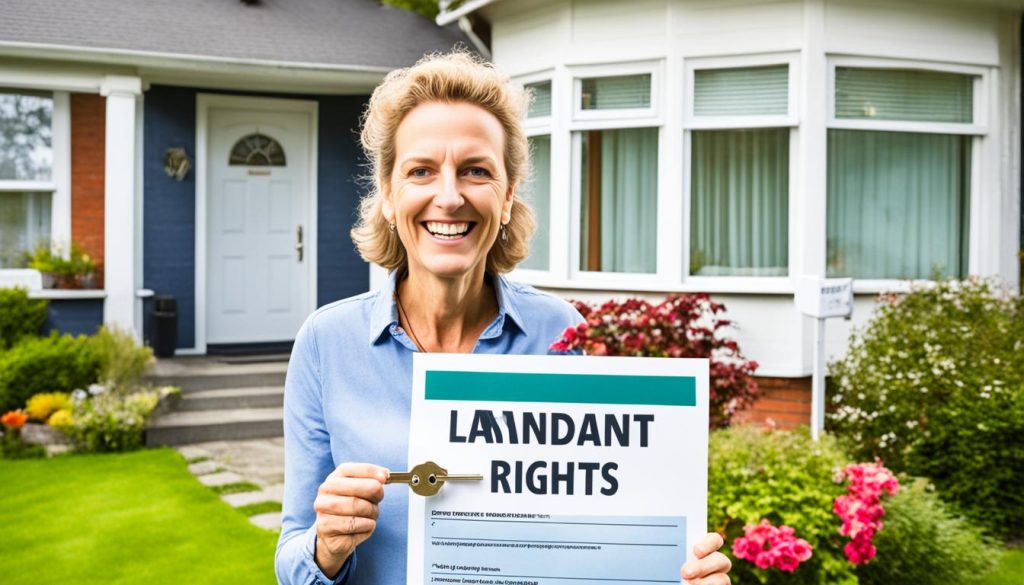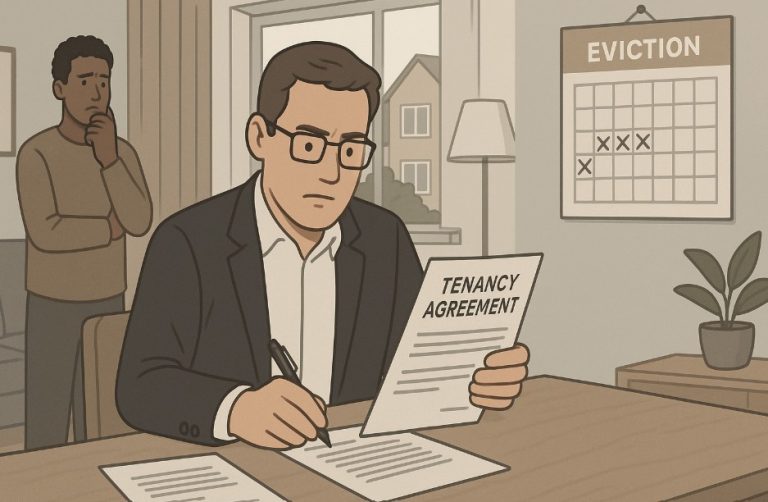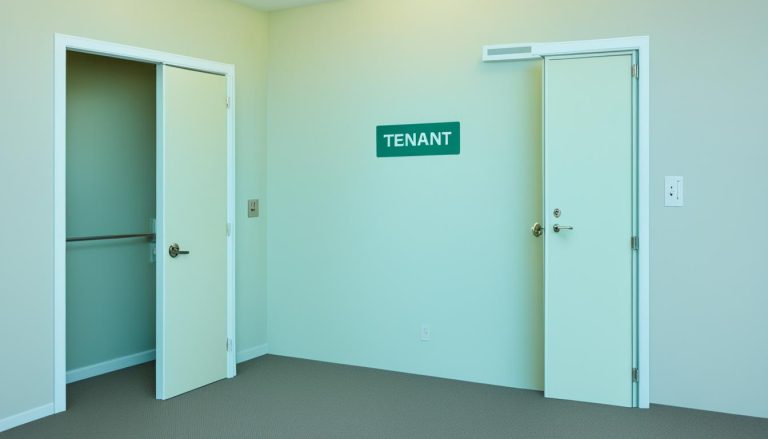Have you ever wondered what an assured tenancy really is? If you’re navigating the world of rental agreements in the United Kingdom, understanding the concept of assured tenancy is essential. But what exactly does it mean? Is it just another type of rental agreement, or does it offer something more? Let’s delve into the world of assured tenancies and explore why they are considered a secure rental option in the UK.
In this comprehensive guide, we will uncover the essentials of assured tenancies, including tenant rights, landlord duties, and key rental aspects. Whether you’re a tenant or a landlord, understanding assured tenancies is crucial to establish a harmonious and secure rental environment.
So, are you ready to discover the intricacies of assured tenancies? Let’s dive in and unravel what makes them a preferred choice for many tenants seeking long-term housing stability.
What is an Assured Tenancy?
An assured tenancy is a type of rental agreement in the United Kingdom that provides secure and long-term housing for tenants. It offers certain rights and protections to tenants, while also outlining the responsibilities of landlords. Assured tenancies are regulated by housing laws and are designed to ensure that tenants have a stable and secure place to live.
Understanding Assured and Assured Shorthold Tenancies
Assured tenancies and assured shorthold tenancies are the two main categories of rental agreements in the United Kingdom. What sets them apart is the level of security they provide for tenants.
An assured shorthold tenancy allows landlords to regain possession of the property after a fixed period of time, generally six months. This type of tenancy offers certain rights and protections to tenants but provides landlords with more flexibility. While it is a popular choice for short-term rentals, it gives tenants a relatively short-term guarantee.
On the other hand, an assured tenancy grants tenants greater security. Landlords must provide valid grounds for eviction, ensuring that tenants have more stability in their rental situation. This type of tenancy is especially suitable for those who require a long-term rental arrangement.
Both assured and assured shorthold tenancies are subject to specific regulations and requirements outlined in housing laws. It is essential for both tenants and landlords to familiarize themselves with these regulations to ensure compliance and a harmonious rental experience.
Key Differences between Assured and Assured Shorthold Tenancies
- Assured tenancies provide greater security for tenants.
- Assured shorthold tenancies allow landlords to regain possession of the property after a fixed period.
- Assured tenancies require landlords to provide valid grounds for eviction.
- Both types of tenancies have specific regulations outlined by housing laws.
To illustrate the differences between these two types of tenancies, refer to the table below:
| Aspect | Assured Tenancy | Assured Shorthold Tenancy |
|---|---|---|
| Tenant Security | Provides greater security | Offers relatively shorter-term security |
| Possession Regain | Landlords must provide valid grounds for eviction | Allows landlords to regain possession after a fixed period |
| Regulations | Subject to specific regulations outlined by housing laws | Subject to specific regulations outlined by housing laws |

Key Aspects of an Assured Tenancy
When entering into an assured tenancy, there are several key aspects that both tenants and landlords should be aware of. These include the duration of the tenancy, which can be a fixed term or periodic, the rental agreement terms, including rent amount and payment frequency, and the responsibilities of both the tenant and the landlord. It is important for both parties to understand their rights and obligations under the assured tenancy agreement to ensure a smooth and mutually beneficial rental experience.
Tenancy Duration
The duration of an assured tenancy can vary depending on the agreement between the tenant and the landlord. It can be a fixed term, where the tenancy lasts for a specific period, such as one year. Alternatively, it can be periodic, where the tenancy rolls on a month-to-month or week-to-week basis.
Rental Agreement Terms
The rental agreement terms form the backbone of an assured tenancy. This includes crucial details such as the rent amount, payment frequency, and any other specific conditions agreed upon by both parties. These terms should be clearly outlined in the tenancy agreement to avoid confusion or disputes in the future.
Tenant and Landlord Responsibilities
Assured tenancies come with certain responsibilities for both tenants and landlords. Tenants are responsible for paying rent on time, taking care of the property, and abiding by any agreed-upon terms and conditions. On the other hand, landlords are responsible for maintaining the property, addressing repairs, and respecting the tenant’s right to peaceful enjoyment of the premises.
By understanding these key aspects of an assured tenancy, both tenants and landlords can ensure a harmonious and secure rental experience. Clear communication and adherence to the rental agreement terms are essential for a successful tenancy. It is always advisable for both parties to seek legal advice and familiarize themselves with the relevant housing regulations to protect their rights and interests.

Eviction, Rent Increases, and Tenant Rights
Assured tenants have certain rights and protections when it comes to eviction and rent increases. Landlords cannot evict assured tenants without valid grounds, and they must follow the legal eviction process, which includes providing notice and obtaining a court order. Tenants have the right to challenge the eviction if they believe the grounds are not valid or if the landlord has not followed the proper legal procedures. This ensures that tenants are not unfairly forced to leave their homes.
As for rent increases, landlords can only increase the rent on an assured tenancy if there is a specific provision in the rental agreement or if they follow the proper legal procedures. The rent increase must be fair and reasonable, taking into account factors such as market rates and the condition of the property. Assured tenants have the right to challenge excessive rent increases through rent assessment committees.
Assured tenants also have a range of other rights, including the right to request repairs, the right to a peaceful enjoyment of their home, and protection against unfair eviction. These rights ensure that assured tenants can maintain secure and affordable housing.
What rights does an assured tenant have?
An assured tenant has the right to:
- Live in the property without unnecessary interference from the landlord
- Receive proper notice before the landlord enters the property
- Have their deposit protected in a government-approved scheme
- Challenge excessive rent increases
- Request repairs and maintenance to be carried out by the landlord
- Not be evicted without valid grounds and following the proper legal procedures
Can you evict an assured tenant?
Assured tenants can only be evicted if there are valid grounds and the landlord follows the proper legal procedures. Some common grounds for eviction include:
- Rent arrears
- Damage to the property
- Anti-social behavior
- Breach of tenancy agreement
However, landlords cannot evict assured tenants simply because they want to regain possession or because the tenant has complained about repairs or other issues.
Can a landlord increase the rent on an assured tenancy?
Landlords can increase the rent on an assured tenancy if there is a specific provision in the rental agreement or if they follow the proper legal procedures. The rent increase must be fair and reasonable, taking into account market rates and the condition of the property. Assured tenants have the right to challenge excessive rent increases through rent assessment committees.
What are the benefits of an assured tenancy?
An assured tenancy provides tenants with stability, security, and certain rights and protections. The benefits of an assured tenancy include:
- Long-term and secure housing
- Protection against unfair eviction
- The right to request repairs and maintenance
- The right to challenge excessive rent increases
- Peace of mind knowing that they have the legal right to continue living in the property

Conclusion
Assured tenancies have become an integral part of the UK rental market, offering tenants long-term security and stability in their housing arrangements. By understanding the rights of tenants and the responsibilities of landlords, both parties can establish a positive and harmonious rental experience.
Clear communication between tenants and landlords is crucial in maintaining a healthy tenancy. It is essential for both parties to adhere to the terms outlined in the housing contract, ensuring that obligations are met and rights are respected.
With the right knowledge and understanding of assured tenancies, tenants can enjoy the benefits of a long-term and secure rental, while landlords can fulfill their responsibilities and provide a comfortable living environment. By upholding tenant rights and landlord responsibilities, assured tenancies contribute to a thriving rental market in the UK.
FAQ
What are the key aspects of an assured tenancy?
Key aspects include the duration of the tenancy, which can be a fixed term or periodic, the rental agreement terms, including rent amount and payment frequency, and the responsibilities of both the tenant and the landlord.
Can landlords evict assured tenants?
Landlords cannot evict assured tenants without valid grounds. They must follow the legal eviction process, which includes providing notice and obtaining a court order.
Can landlords increase the rent on an assured tenancy?
Landlords can only increase the rent on an assured tenancy if there is a specific provision in the rental agreement or if they follow the proper legal procedures. Assured tenants have the right to challenge excessive rent increases through rent assessment committees.
What rights do assured tenants have?
Assured tenants have certain rights and protections when it comes to eviction and rent increases. They have the right to maintain secure and affordable housing and challenge excessive rent increases.
Can you end an assured tenancy?
Yes, an assured tenancy can be ended but only under certain circumstances. It is important to first consult with a lawyer or a trusted source of legal advice before making any decisions regarding ending an assured tenancy.






